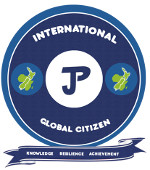United Nations Association of New Zealand
Special for Global Health.
By Jean-Paul Bizoza
05 Nov 2021
The concept of Global health was initiated by the United Nations (UN) with the world bank in 1945 and finally implemented by the World health organization (WHO) in 1948 after devastating epidemics that took thousand lives at the time. Since then, the United Nations health agency has taken measures to improve global health through research initiatives, monitoring, leadership and best practice standards among members of states. The concept of Global Health (GH) is not to be confused with international health, which is defined as the branch of public health focusing foreign aid efforts for developing nations. In contrast, global health emphasizes governance arrangements, development frameworks, social dynamics of health and international health systems. As a new area of special expertise, I will mainly focus on COVID-19 implications on global health and advancement for a Framework Convention on Global Health (FCGH) including New Zealand commitments to the World Health Organization, global health equity and sustainable development Goals in the Western Pacific Region.
The impact of COVID-19 on global health
The impact of a COVID-19 pandemic has led to millions of deaths and global disruption to almost every part of life. Amid a global health coronavirus crisis, there are questions as to how governments have responded to the pandemic. In the case of Aotearoa New Zealand, the government was initially praised for its elimination strategy, which successfully kept COVID cases out of the community in 2020. As the highly infectious Delta strain began wreaking havoc across Auckland in 2021, the Ministry of Health abandoned the initial strategy (elimination), and it approved a “COVID-19 Protection Framework” as a new pathway out of lockdown.
The Protection Framework, which became contentious (vague) and will be initiated when once 90% of eligible New Zealanders are fully vaccinated According to the NZ Ministry of Health. It is anticipated that the framework will open borders to the world and provide freedom of movements with less disruption. With the new approach announced by the NZ Prime Minister, there are now questions whether opening up the borders will hit the highest contagious Delta variant Covid-19 cases in the community leading to a potential overwhelming health system. The framework has also raised questions whether it adheres to WHO best available expert advice on COVID-19 response especially technical guidance on lockdown, vaccine equity, human rights and the importance of reliable information quality at a time when rumors are thriving.
To start with, the WHO recommends countries to open border restrictions cautiously, whilst keeping COVID-19 golden rules that encompass vaccination, physical distance of at least 2 meters from others, use of properly fitted masks and cleaning hands frequently and self-isolation for infected people. The WHO strongly advocates for health equity and protection of the most vulnerable people. In addition, the WHO urges members of states to avoid a "global one size fits all policy", and it urges them to adhere to vaccine equity targets as this will substantially increase population immunity globally, protect health systems, enable economies to fully restart and ultimately reduce the risk of new variants emerging. One would then ask whether New Zealand has taken into account the recommendations above with regards to COVID-19 global response, particularly vaccine equity for our neighbor pacific nations through COVID-19 Vaccines Global Access also known as COVAX. As a country that supports the concept of global citizenship, one would also question New Zealand contribution vis a vis equitable vaccine for most vulnerable people in the western pacific nations.
What should United Nations Association of New Zealand do?
UNANZ's role is mainly to help New Zealanders understand the UN and promote engagement with it. Thus, it should encourage New Zealand to promote the UN multilateral system, human rights on COVID-19 (individual liberty) and effective global cooperation. Threats to people’s livelihood and human survival, brought on by COVID-19 demonstrates that the pandemic is more than a health crisis, which requires successful epidemic prevention efforts from national, regional and global level. In the light of that, New Zealand needs to promote the Global Health Security Initiative. I.e., The effects of the pandemic between and within countries will be felt on a global scale for years to come.
Importantly, New Zealand needs to advance “health for all / best care for everyone policy”, build a world where people regardless of where they live, or who they are, have urgent access to vaccinations. As the pandemic has shown, no one is safe until everyone is safe and a global/complex threat requires global solutions. Vaccine equity is paramount as it is a powerful tool in stopping the vast majority of people getting sick, hospitalized and dying. While we encourage people to take vaccination, we should make sure that the Ministry of Health response to coronavirus is grounded in the principles of human right, public trust, transparency, respect and empathy for the most vulnerable.
We are in this together, all have to play our part and will get through this together, He waka eke noa
End
